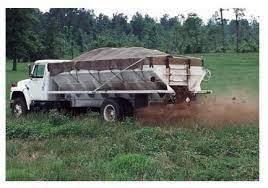A Bill to require chicken farms to submit waste management plans to the North Carolina Department of Environmental Quality (NC DEQ) failed in the most recent legislative session. In addition to the waste management program, the proposed law would have limited erection of chicken and turkey houses on land located within a 100-year flood plain.
Poultry is the largest agricultural industry in North Carolina generating $40 billion in 2020 with 5,700 farms raising 920 million broilers and 30 million turkeys. Since litter from chicken and turkey houses is regarded as “dry” according to a 1993 rule, chicken operations fall under a “deemed permitted” category. Accordingly grow-out and breeder farms only require building permits.
 The Department of Environment Quality is unaware of the location and size of individual farms although this information is held by the Department of Agriculture to be used in the event of a disease outbreak. North Carolina law prevents transfer of information among departments. Currently state law requires growers to maintain records of dry litter produced and removed from farms covering a three-year period but this data is not submitted to the NC DEQ.
The Department of Environment Quality is unaware of the location and size of individual farms although this information is held by the Department of Agriculture to be used in the event of a disease outbreak. North Carolina law prevents transfer of information among departments. Currently state law requires growers to maintain records of dry litter produced and removed from farms covering a three-year period but this data is not submitted to the NC DEQ.
Activist organizations including the Water Keeper Alliance, North Carolina Environmental Justice Network and the Cape Fear River Watch are ratcheting up pressure on the Department of Environmental Quality to be more transparent and to investigate more thoroughly complaints relating to odor and nutrient pollution including algae blooms attributed to broiler and turkey farms.
Given the importance of the chicken industry and its lobbying strengths, it is doubtful that restrictive legislation will be passed in the foreseeable future. In the interim, integrators should counsel their contractors in the eastern counties of Duplin, Sampson and Roberson to apply practices that limit nuisance and to prevent as far as possible runoff of nutrients into waterways. Long-term alternative procedures to dispose of dry litter will be required as on the Eastern shore to obviate environmental degradation and to derive value from the waste material.